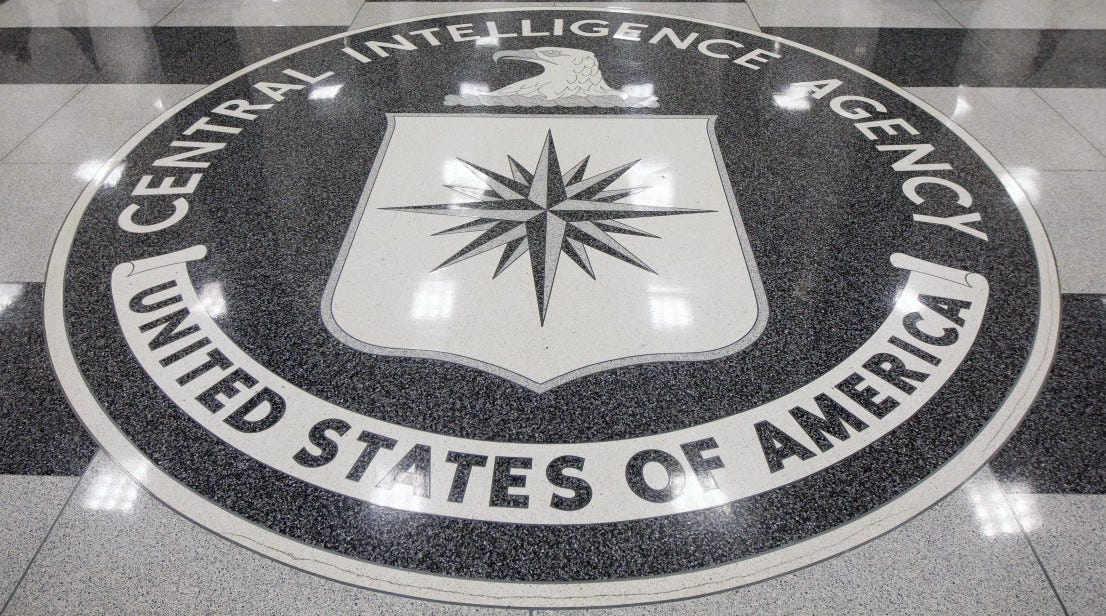The term "conspiracy theory" in its current use became popular around the middle of the 20th century. This process was very notably propelled by the CIA — to help them cover their alleged tracks. Rather amusing attempts to debunk this stumble over the pretty obvious difference between:
a "conspiracy theory" being one of multiple theories on the table regarding a phenomenon, where the different theories are (usually casually) given labels for ease of speech1, "conspiracy theory" thus being a neutral descriptor and
the idea of a "conspiracy theory" as an implausible explanation, most definitely not on the table, for a certain phenomenon, where any reasonable attempt to understand said phenomenon would have to preclude conspiracy.
While of course, the words "conspiracy" and "theory" are readily joined in English, which obviously had happened before the JFK assassination, today's weaponised, mind-shutting and discussion-aborting use of the term is a very specific one and was firmly established with the release of CIA Document 1035-960 ("Countering Criticism of the Warren Commission Report").
It needs no explanation that conspiracies are, in fact, a real thing. A conspiracy is defined by the Cambridge Dictionary simply as "the activity of secretly planning with other people to do something bad or illegal" while a criminal conspiracy is described on Wikipedia as "an agreement between two or more persons to commit a crime at some time in the future". Is it necessary to enumerate the conspiracies that have killed, injured, poisoned and defrauded countless people in the past to make this point? It is not, but this short list can get you started. There's more.
Popular use of the term theory does not correspond to its scientific use. According to the Cambridge Dictionary, a theory is "a formal statement of the rules on which a subject of study is based or of ideas that are suggested to explain a fact or event or, more generally, an opinion or explanation". Popular use as a synonym for "opinion" or "explanation" does correspond to this definition, yet offers no incremental value over using the other two terms.
Thus, it would seem more useful to stick to the scientific idea of a theory. Wikipedia defines it as "an explanation of an aspect of the natural world and universe that has been repeatedly tested and corroborated in accordance with the scientific method, using accepted protocols of observation, measurement, and evaluation of results".
While I won't pretend to be fully satisfied by either definition of a (scientific) theory, they suffice to demonstrate that we are dealing with something vastly different from what people think of when they hear "conspiracy theory".
What, then, is a conspiracy theory? It would have to be a formal statement of the explanation of some process as a conspiracy, including how it has been arrived at, how it has been tested and corroborated and how all of that conforms to accepted standards of scientific reasoning. While I have never encountered such a theory, it would be a thing of beauty — the evidence lined up in a polished way, the standard used for assessing it made explicit, testable hypotheses ready to be derived, thus rendering the entire theory specifically falsifiable.
On a much more practical note, next time your opinion or explanation is rejected out of hand as a conspiracy theory, I suggest you answer something like the following:
"Actually, it is more of a conspiracy hunch. Do you know what a theory is?"
"Hold your horses! Perhaps it would be better described as a hypothesis, don't you think? Do you know what a theory is?"
"Not really, no. It is simply a description of what might be a conspiracy. I will provide you with my evidence if you are interested in using reason to figure this one out, unless you can use reason to convince me that I don't even have to think about this. Do you know what a theory is?"
"Indeed, and I am proud of having developed the first actual conspiracy theory in history. It took decades of work. Here's my monograph."
In all seriousness though, I am convinced that skeptics of the approved narrative need to finally own this language. Unlike a physical weapon, weaponised language only works as long as it isn't revealed as what it is. Calm, rational deflection of the undermining of credibility through usage of the term "conspiracy theory" can work:
acknowledge that it is indeed an explanation of a process as a conspiracy,
maintain that this is most certainly not a negative in and of itself — that it only depends on the quality and correct interpretation of the evidence and
demonstrate that there is evidence which will gladly be shared.
By these simple steps, one's standing in any discussion is massively improved and truth, as far as our human limitations allow us to grasp it, is better served.
And what would be the alternative? Telling one's descendants that you just weren't allowed to say these things back then and that one had to keep quiet in order not to be excommunicated? Already today, we can see this strategy could only work for a threat that evaporates on its own as time elapses. Current threats to the unfolding of the human project likely will not by remedied by patient submission.






Thank you Momo. An excellent piece.
Well said.